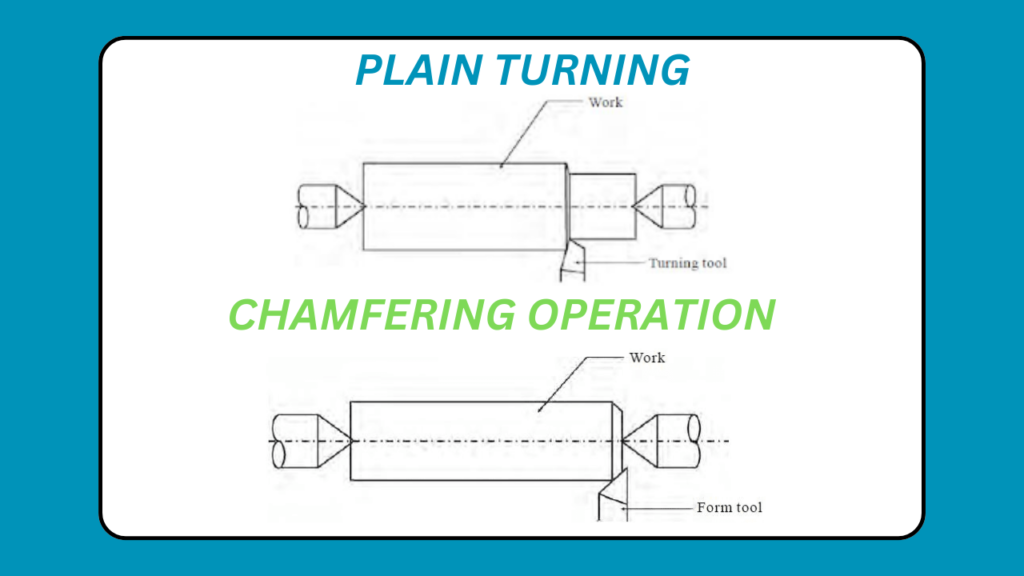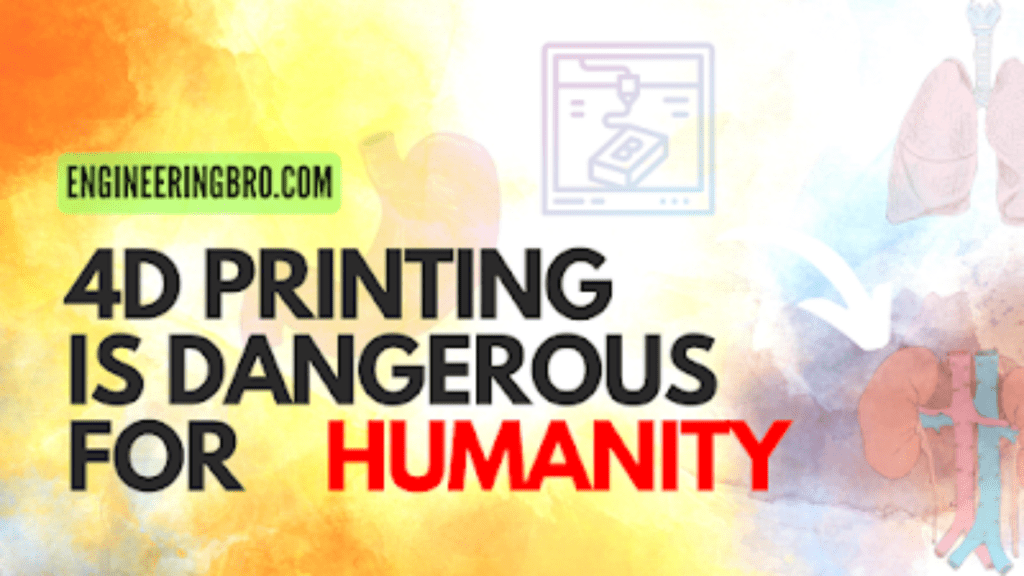Cons of Pursuing Mechanical Engineering in 2024
-
Limited Career Prospects: Mechanical engineering may face challenges due to shifts in industry demands, automation, and outsourcing, potentially leading to fewer job opportunities.
-
Technology Disruption: Emerging technologies like artificial intelligence and robotics could impact traditional mechanical engineering roles, making certain skills obsolete and requiring retraining.
-
Global Economic Factors: Economic fluctuations, geopolitical tensions, and market dynamics may affect industries traditionally reliant on mechanical engineering, leading to uncertainty in job stability.
-
Salary Concerns: While mechanical engineering can offer competitive salaries, trends suggest salary growth may not match other rapidly evolving fields, potentially impacting long-term earning potential
-
Specialization Challenges: The specialized nature of mechanical engineering may limit career flexibility, especially as industries evolve and demand interdisciplinary skills.
But After all these things Mechanical engineering is an Evergreen branch, in the next 10 years gradually industry shift will change due to the lack of skilled Mechanical engineers, so you just need to become a highly skilled Mechanical engineer, so the conclusion is that you can pursue Mechanical engineering, it’s a good career path
What is Mechanical Engineering?
Mechanical engineering is a discipline of engineering that deals with the design, analysis, manufacturing, and maintenance of mechanical systems.
Mechanical engineers use the principles of physics, material science, and mathematics
to develop and improve machines and devices that help make our lives easier.
 |
| Mechanical Engineering Source : istock |
Introduction
Mechanical engineering is a vast field with diverse applications in industries such as automotive, aerospace, construction, energy, and robotics. From designing engines and turbines to developing medical devices and sustainable infrastructure, mechanical engineering plays a critical role in shaping modern society.
In this blog post, we will explore the basics of mechanical engineering and its impact on our daily lives.
What Does a Mechanical Engineer Do?
Mechanical engineers are responsible for designing, analyzing, and optimizing mechanical systems. They work with a range of tools and techniques, such as computer-aided design (CAD), finite element analysis (FEA), and computational fluid dynamics (CFD) to create and test mechanical components and assemblies.
Some of the tasks that mechanical engineers perform include:
Design and Development
- Designing and developing mechanical components, systems, and machines, such as engines, turbines, HVAC systems, and manufacturing equipment
- Creating and interpreting technical drawings, models, and blueprints using CAD software
- Conducting simulations and tests to evaluate the performance and efficiency of designs
- Developing and refining prototypes based on test results and user feedback
- Collaborating with other engineers and professionals, such as electrical engineers and industrial designers, to develop integrated systems and products
Manufacturing and Production
- Overseeing the manufacturing and production of mechanical components and systems
- Developing production processes and quality control procedures
- Troubleshooting and resolving issues during the manufacturing process
- Identifying opportunities for cost savings and efficiency improvements in manufacturing and production processes
Testing and Evaluation
- Testing mechanical components and systems to ensure they meet performance and safety standards
- Developing and conducting performance tests to evaluate the effectiveness of new products or technologies
- Analyzing test data to identify areas for improvement and optimize designs
- Conducting failure analysis to identify and correct design flaws and improve reliability
Maintenance and Repair
- Developing maintenance procedures and schedules for mechanical components and systems
- Troubleshooting and diagnosing issues with mechanical systems and equipment
- Developing and implementing repair strategies to minimize downtime and maximize performance
- Conducting preventative maintenance to prolong the life of mechanical systems and components
Project Management
- Planning and coordinating engineering projects from start to finish
- Managing budgets, timelines, and resources to ensure project success
- Communicating with stakeholders, including clients, contractors, and other engineers, to ensure project requirements are met
- Conducting risk assessments and developing contingency plans to mitigate potential project risks
Research and Development
- Conducting research to develop new products, materials, or technologies
- Investigating new manufacturing processes and production techniques
- Analyzing data to identify trends and opportunities for improvement
- Developing intellectual property, such as patents and trade secrets, to protect new inventions and innovations
Mechanical engineers may specialize in different areas of the field, such as thermal systems, robotics, materials science, or biomechanics.
Why Is Mechanical Engineering Important?
Mechanical engineering has a significant impact on our daily lives, from the cars we drive to the buildings we inhabit.
Here are some examples of how mechanical engineering affects us:
- Transportation: Mechanical engineers design and develop vehicles such as cars, planes, trains, and ships that enable us to travel faster and more efficiently. They also work on improving fuel efficiency, reducing emissions, and enhancing safety features.
- Energy: Mechanical engineers play a crucial role in developing sustainable energy solutions, such as wind turbines, solar panels, and hydroelectric power plants. They also work on improving the efficiency of traditional energy sources, such as fossil fuels and nuclear power.
- Medical devices: Mechanical engineers design and manufacture medical devices such as prosthetics, artificial organs, and surgical instruments. They also develop systems for drug delivery and diagnostic imaging.
- Manufacturing: Mechanical engineers design and optimize production systems that allow us to mass-produce goods efficiently and economically. They also work on improving the quality and reliability of products.
How to Become a Mechanical Engineer?
To become a mechanical engineer, you typically need a bachelor’s degree in mechanical engineering or a related field. Some employers may also require a master’s degree or a professional engineering license.
Mechanical engineering programs typically cover topics such as mechanics, thermodynamics, materials science, and engineering design. Students also learn how to use software tools such as CAD, FEA, and CFD.
In addition to formal education, mechanical engineers need to have strong analytical, problem-solving, and communication skills. They also need to keep up with the latest developments in their field and pursue continuing education opportunities.
Future of Mechanical Engineering:-
The future of mechanical engineering is exciting and promising. As technology continues to advance
at an unprecedented pace, mechanical engineers will play a critical role in developing innovative solutions to the world’s most pressing challenges.
Here are some of the key trends and developments that are shaping the future of mechanical engineering:
Automation and Robotics
The use of automation and robotics is rapidly transforming manufacturing and other industries. Mechanical engineers are at the forefront of this trend, developing robots and automation systems
that can perform complex tasks more efficiently and accurately than humans. In the future, we can expect to see even more advanced robots and automation systems that can operate in challenging environments, such as space, deep sea, and hazardous sites.
Sustainable Energy
As the world becomes more aware of the environmental impact of traditional energy sources, mechanical engineers are working to develop sustainable energy solutions, such as wind turbines, solar panels, and geothermal systems. In the future, we can expect to see even more innovative approaches to clean energy, such as using artificial photosynthesis to produce fuel from sunlight
and carbon dioxide.
Biomechanics and Medical Devices
Mechanical engineers are also making significant contributions to the field of biomechanics, which involves applying mechanical principles to biological systems. This field has already led to the development of advanced prosthetics, implants, and medical devices that can improve the quality of life for people with disabilities or medical conditions. In the future, we can expect to see even more advanced medical devices that are tailored to individual patients’ needs and can interface directly with the human body.
Additive Manufacturing
Additive manufacturing, also known as 3D printing, is transforming the way that products are designed and manufactured. Mechanical engineers are using 3D printing to create complex, lightweight, and highly customized components and structures. In the future, we can expect to see even more advanced 3D printing technologies that can produce larger and more complex objects with a wider range of materials.
Artificial Intelligence and Machine Learning
Artificial intelligence and machine learning are becoming increasingly important in many industries, and mechanical engineering is no exception. Mechanical engineers are developing AI-powered systems that can optimize designs, predict failures, and automate maintenance. In the future, we can expect to see even more advanced AI systems that can learn from data and improve their performance over time.
Hence the future of mechanical engineering is bright and full of opportunities. As technology continues to advance, mechanical engineers will be at the forefront of innovation, developing new solutions that can improve our lives and the world around us.
List of Best Career opportunities for mechanical engineer
Here are some of the best career opportunities for mechanical engineers:
- Design Engineer: Mechanical engineers who are skilled in designing and developing new products, systems, and machinery can work as design engineers. They use their knowledge of materials, manufacturing processes, and computer-aided design (CAD) software to create prototypes and test them.
- Manufacturing Engineer: Manufacturing engineers work in manufacturing plants to optimize the production process and reduce costs. They use their knowledge of materials, processes, and tools to improve the efficiency of the manufacturing process.
- Aerospace Engineer: Mechanical engineers who specialize in aerospace engineering design and develop aircraft, spacecraft, and satellite systems. They work with a team of engineers to create products that meet the needs of the aerospace industry.
- Automotive Engineer: Automotive engineers design and develop vehicles and their components. They work on improving fuel efficiency, safety, and performance.
- Energy Engineer: Energy engineers design and develop systems for generating and storing energy. They work on renewable energy technologies such as wind turbines, solar panels, and fuel cells.
- Robotics Engineer: Robotics engineers design and develop robots and other automated systems. They work on everything from industrial robots used in manufacturing to autonomous robots used in space exploration.
- HVAC Engineer: HVAC (heating, ventilation, and air conditioning) engineers design and develop systems to regulate temperature, humidity, and air quality in buildings. They work on everything from small residential systems to large commercial and industrial systems.
- Biomedical Engineer: Biomedical engineers apply their knowledge of mechanical engineering to the design and development of medical devices and equipment. They work on everything from artificial limbs to diagnostic equipment.
These are just a few of the many career opportunities available to mechanical engineers.
Conclusion
Mechanical engineering is a fascinating and vital field that impacts many aspects of our lives. From transportation to energy, and medical devices to manufacturing, mechanical engineers play a critical role in shaping the modern world.
If you’re interested in pursuing a career in mechanical engineering, be sure to explore the different specialties and keep up with the latest trends and technologies. With hard work and dedication, you can make a positive impact on society through mechanical engineering.
Checkout our home page for more informative content




